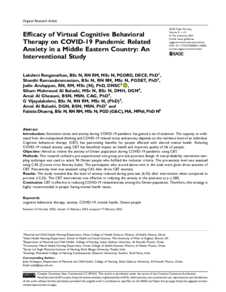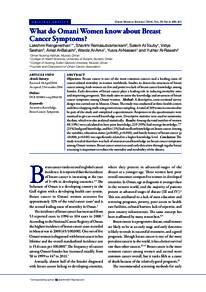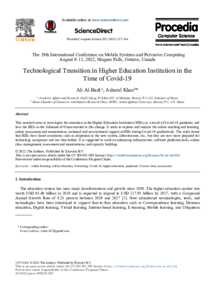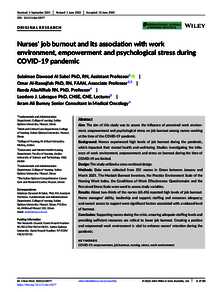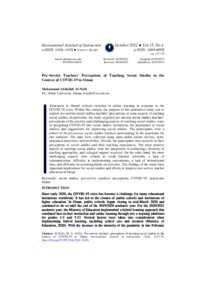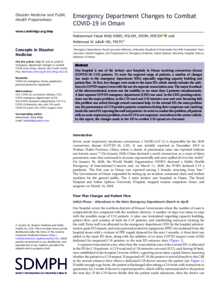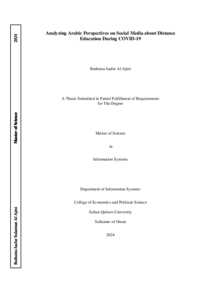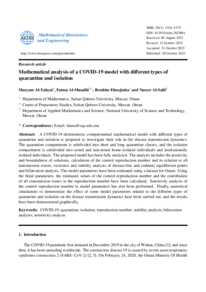Document
Efficacy of virtual cognitive behavioral therapy on Covid-19 pandemic related anxiety in a Middle Eastern country : an interventional study.
Identifier
DOI: 10.1177/23779608231162060
Source
SAGE Open Nursing. v. 9
Contributors
Ramasubramaniam, Shanthi., Author
Arulappan, Judie., Author
Al-Balushiyah, Siham Mahmood., Author
Al-Ghassaniyah, Amal., Author
Vijayalakshmi, G., Author
Al-Balushiyah, Amal., Author
Dhanraj, Fabiola., Author
Country
United States.
City
California.
Publisher
SAGE Publications Inc.
Gregorian
2023-01-01
Language
English
Subject
English abstract
Introduction: Emotional stress and anxiety during COVID-19 pandemic has gained a lot of attention. The capacity to withstand from the manipulated thinking and COVID-19 related stress and anxiety depends on the resilience level of an individual. Cognitive behavioral therapy (CBT) has patronizing benefits for people affected with altered mental health. Relieving COVID-19 related anxiety using CBT has beneficial impact on health and improves quality of life of people. Objective: Aimed to relieve the anxiety of Omani population during COVID-19 pandemic using CBT. Methods: This research utilized a pre-experimental one group pre-test post-test design. A non-probability convenient sampling technique was used to select 96 Omani people who fulfilled the inclusion criteria. The pre-anxiety level was assessed using CAS (Corona virus Anxiety Scale). The participants who scored above nine in the scale were given three sessions of CBT. Post-anxiety level was assessed using CAS after three CBT sessions. Results: The study revealed that the level of anxiety reduced during post-test (6.35) after intervention when compared to pre-test (13.22). The CBT intervention was effective in reducing the anxiety in the post-test at p ≤.000. Conclusion: CBT is effective in reducing COVID-19 related anxiety among the Omani population. Therefore, this strategy is highly recommended in people having mental health issues.
ISSN
2377-9608
Category
Journal articles

